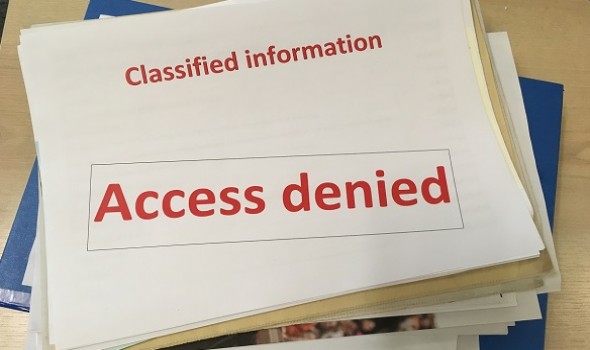Editorial: Data – No protection
Editorial: Data – No protection

Future Windrush-type scandals can now be covered up thanks to the new two-tier system of human rights called the Data Protection Act.
As of 25 May we no longer have the right to know what data the Home Office hold on us when it comes to immigration. From now on, groups like the Windrush victims would not be able to access justice as they would be denied access to immigration information held on them.
The Data Protection Act is meant to ensure our personal data is better protected and that we have a right to see what is held on us and rectify any mistakes in that data - unless it relates to migration, where we have no such rights.
This exemption would disproportionately interfere with fundamental rights of privacy, data protection, equality and non-discrimination of millions of UK foreign residents.
This is particularly important as we know how complicated the immigration processes are in the UK and how many mistakes are made that need to be corrected or are later rectified through appeals. The Law Society recently confirmed that almost 50 per cent of UK immigration and asylum appeals are successful.
We are extremely concerned about the intention to remove several fundamental data protection principles and most rights to access data when it is deemed that these could interfere with “effective immigration controls”, because this power can be abused.
People accused of an immigration offence would not have the right to know what information public authorities hold about them and they would therefore not be able to appeal against a decision even if, for instance, it was based on inaccurate information.
This is what you would expect in a dictatorship, not in the UK: it is a stain on democracy.
Migrant Voice knows that this will particularly affect migrants, refugees and asylum seekers going through immigration and asylum processes, such as applying for settled status, citizenship, permanent residency and applying for asylum. It will also affect UK citizens in a number of ways - for example, those seeking to bring family members to the UK.
We have seen mistakes made, including individuals being refused asylum and told to go back to Africa, when they are actually from Europe; and people granted asylum issued with biometric ID with the wrong date of birth which led to them not being able to access work, benefits, and move on with their lives.
Access to data also protects individuals who are victims of rogue solicitors. An immigration advisor with whom Migrant Voice works had a client from Jamaica who, following a visit to her MP, was told that there was no pending application even though the solicitor had said so to the client. A subject access request to the Home Office by the advisor showed that no application had been submitted. The client was then helped by the advisor to submit an application and now has Leave to Remain.
The new Data Protection Act also means we don’t have the right to see which data state bodies and organisations such as the NHS, HMRC, DWP, have shared with the Home Office about us.
The organisation Liberty, and legal organisations such as The Law Society and Bar Council have warned of the effects of this ‘immigration exemption’ and currently the3million and Open Rights Group are crowdfunding to challenge it in the courts.
Migrant Voice strongly supports the campaign to remove the immigration exemption from the UK Data Protection Act.
More information:


